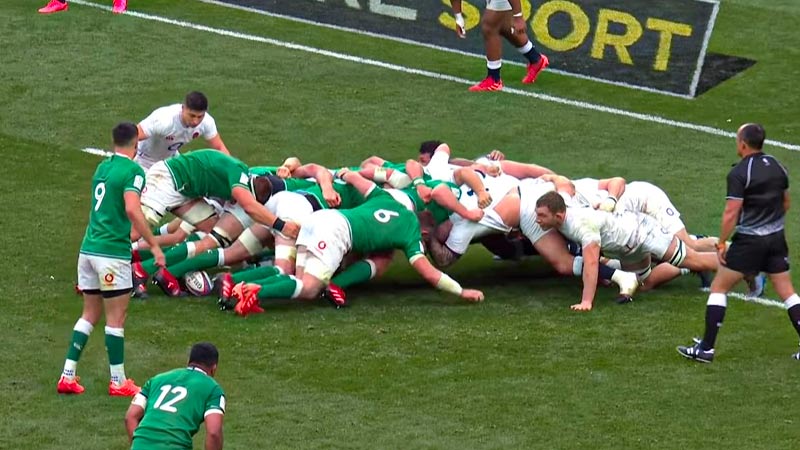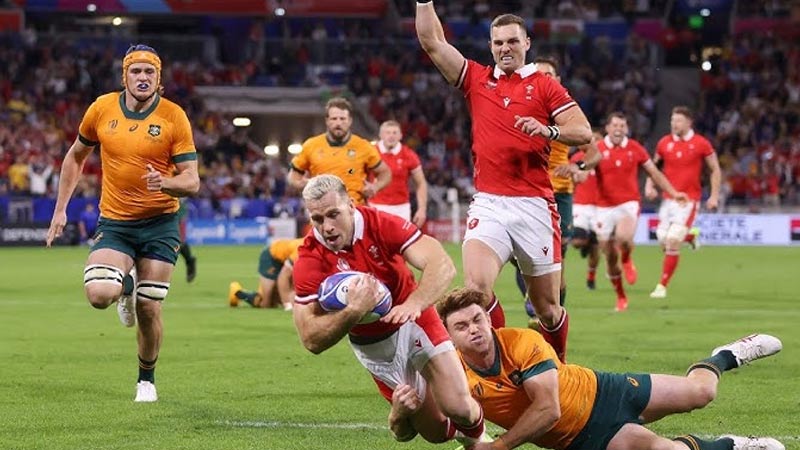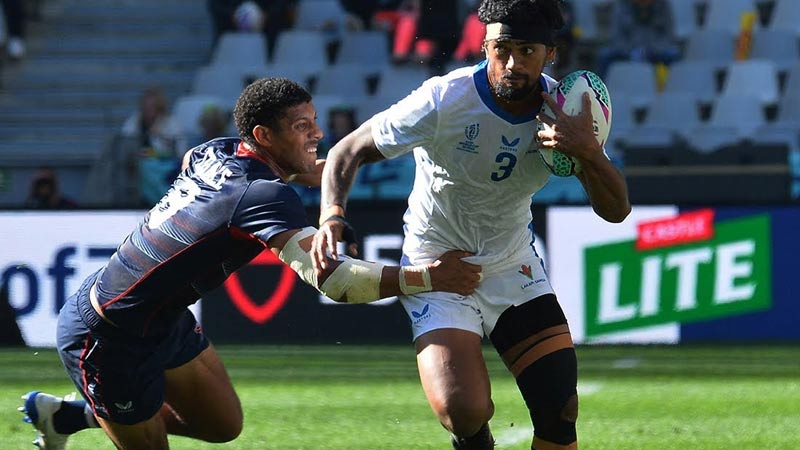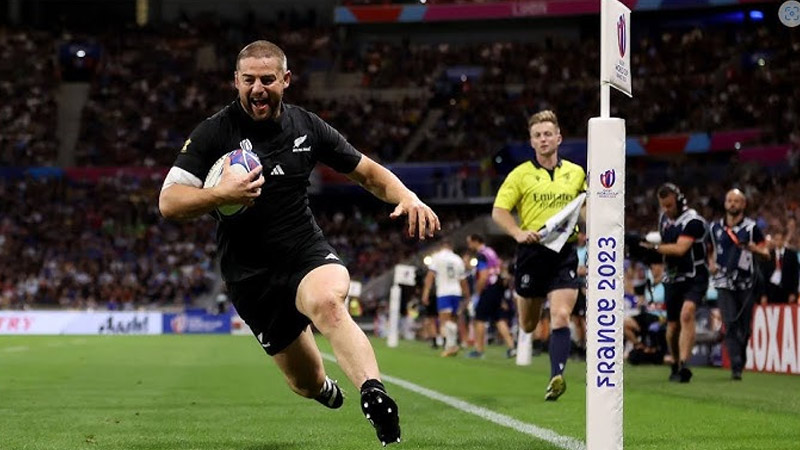Rugby, a dynamic and physically demanding sport, has captured the hearts of millions worldwide. While it may not have the global ubiquity of soccer, rugby boasts an ardent following in specific regions that celebrate it with unrivaled fervor.
From the hallowed stadiums of Twickenham in England to the electric atmosphere of Eden Park in New Zealand, rugby is more than just a game; it’s a way of life. The enduring allure of rugby in these nations is a reflection of the sport’s deep-rooted values of teamwork, resilience, and sportsmanship.
But where is rugby popular and why? In this exploration, we embark on a journey across continents and delve into the cultural, historical, and social factors that have made rugby a cherished part of the sporting fabric in certain nations.
Join us as we unravel the deep-seated love for rugby and the reasons behind its enduring popularity in these rugby-loving regions.
Where is Rugby Popular and Why: A Global Passion for the Sport
Let’s explore the areas where rugby is the most popular game and what makes it so widespread in those locations.
New Zealand: Where Rugby is Religion
In the rolling green hills of New Zealand, rugby is not merely a sport; it’s a way of life. The All Blacks, New Zealand’s national rugby team, are revered as sporting deities, and their iconic silver fern jersey is a symbol of national pride. But why is rugby so popular in this island nation of just over five million people?
Cultural Connection
The Māori people, New Zealand’s indigenous population, have a deep-rooted connection to rugby. The haka, a traditional Māori war dance performed by the All Blacks before matches, is a powerful cultural expression that has become synonymous with rugby in New Zealand.
Historical Significance
Rugby was introduced to New Zealand in the 1870s, and it quickly became a unifying force. The famed 1905 All Blacks tour of the British Isles, during which they remained undefeated, solidified rugby’s place in New Zealand’s sporting lore.
Community Bond
In New Zealand, rugby is more than just a game; it’s a communal experience. Families gather around their television sets, and entire towns come to a standstill during important matches. Rugby bridges generational gaps and fosters a sense of belonging.
England: Where the Rivalries Run Deep

In the birthplace of rugby, England, the sport holds a special significance. The Rugby Football Union, founded in 1871, was instrumental in codifying the rules of the game.
England boasts a rich rugby tradition, and its domestic league, the Premiership, is one of the strongest in the world.
Historical Roots
Rugby School in Warwickshire, England, is where it all began. The story goes that William Webb Ellis, a student at Rugby School in 1823, picked up the soccer ball during a game and ran with it, thus laying the groundwork for rugby as we know it.
Intense Rivalries
England’s long-standing rivalries with neighboring nations like Wales, Scotland, and Ireland add a layer of intensity to the sport. The Six Nations Championship, an annual competition between these teams, is a showcase of passion and fierce competition.
Diverse Participation
England’s rugby community is diverse, with players hailing from various backgrounds and communities. This inclusivity has contributed to the sport’s widespread appeal.
South Africa: Rugby as a Unifier
In the rainbow nation of South Africa, rugby has played a pivotal role in transcending racial divides and fostering unity among its people.
Apartheid Era
During the apartheid era, rugby was segregated along racial lines. However, the iconic moment when Nelson Mandela donned the Springbok jersey to present the Rugby World Cup to South Africa in 1995 remains a symbol of reconciliation and hope.
Rugby World Cup Glory
South Africa’s victory in the 1995 Rugby World Cup and subsequent wins in 2007 and 2019 brought the nation together like no other event. It showcased the unifying power of sport and rugby’s role in healing a divided society.
Passion and Diversity
South Africans are passionate about rugby, regardless of their background. The sport transcends class and race, providing a common ground for diverse communities.
Australia: Land of Sporting Excellence

In Australia, a country known for its sporting prowess, rugby is one of the top-tier sports, alongside cricket and Australian rules football.
Rich History
Rugby has a long history in Australia, dating back to the 1800s. The Wallabies, Australia’s national rugby team, have a storied rivalry with the All Blacks, and matches between the two nations are highly anticipated.
Rugby League vs. Rugby Union
While rugby union is widely followed in Australia, rugby league also has a strong presence. The National Rugby League (NRL) is a major competition, and rugby league is particularly popular in the states of New South Wales and Queensland.
Global Competitiveness
Australia consistently fields competitive teams in international competitions, and the Wallabies are known for their skill and flair on the field.
France: A Rugby Powerhouse in Europe
In the heart of Europe, France stands as a rugby powerhouse with a passionate following and a storied history.
European Dominance
France is a key player in European rugby, competing in the Six Nations Championship alongside England, Ireland, Scotland, Wales, and Italy. The competition is steeped in tradition and fierce rivalries.
Top Domestic League
The Top 14, France’s premier domestic rugby competition, features some of the world’s best players. The league’s success has bolstered the popularity of rugby in the country.
Cultural Love for the Sport
Rugby is deeply embedded in French culture, with a strong emphasis on flair and creativity on the field. The French “joie de vivre” is often reflected in their style of play.
How Popular is Rugby in the USA?

While it may not have the same level of mainstream prominence as American football, baseball, or basketball, rugby has been on an upward trajectory in recent years, with growing participation, increased visibility, and a dedicated fan base.
Let’s explore the popularity of rugby in the USA and the factors contributing to its growth.
Growing Participation
Rugby has seen a significant increase in participation across the United States. This growth is evident at various levels, from youth and high school rugby to collegiate and club rugby teams.
One of the primary reasons for this surge in participation is the sport’s inclusivity and accessibility. Rugby welcomes players of all shapes, sizes, and athletic backgrounds, making it attractive to a diverse range of individuals.
Collegiate Rugby
Collegiate rugby plays a pivotal role in the sport’s popularity in the USA. Many universities and colleges have established rugby programs, both men’s and women’s, providing opportunities for student-athletes to compete at a high level.
Collegiate rugby often serves as a pathway to national and international representation, creating a strong talent pipeline.
Olympic Inclusion
The inclusion of rugby sevens in the Olympic Games has had a significant impact on the sport’s visibility and growth in the USA. Since rugby sevens made its Olympic debut in 2016, interest in the sport has surged.
The fast-paced, seven-a-side version of rugby appeals to a broader audience and has introduced rugby to a new generation of fans.
Professional Leagues
The establishment of professional rugby leagues has brought a higher level of competition and visibility to the sport. Major League Rugby (MLR), founded in 2017, has expanded steadily and now features teams from coast to coast.
The league attracts international talent and offers American players a platform to develop their skills at a professional level.
Youth and High School Rugby
Youth and high school rugby programs have flourished, introducing the sport to a younger generation. These programs emphasize skill development, sportsmanship, and character-building, fostering a love for rugby that often continues into adulthood.
National Teams
The USA Men’s and Women’s national rugby teams have made significant strides in recent years, garnering attention and support. Competing on the international stage, especially in Rugby World Cup tournaments, has increased the visibility of rugby and created new fans.
Television and Media Coverage
Television and media coverage have played a crucial role in popularizing rugby. Networks like NBC, ESPN, and CBS Sports regularly broadcast rugby matches, including domestic league games and international competitions. This exposure has helped rugby reach a broader audience.
Grassroots Development
Rugby organizations and governing bodies have invested in grassroots development programs, coaching certifications, and referee training. These initiatives ensure that the sport is accessible at the community level and supports its growth.
Cultural Diversity
Rugby’s diverse and inclusive nature resonates with America’s multicultural society. The sport attracts players from various backgrounds, fostering a sense of unity and camaraderie among participants.
International Events
Hosting international rugby events, such as test matches and tournaments, has bolstered rugby’s profile in the USA. Major stadiums in cities like Chicago, Los Angeles, and New York have welcomed international rugby teams, drawing crowds and generating excitement.
Challenges and Opportunities
Despite its growth, rugby in the USA faces several challenges, including competition from established American sports, limited resources, and the need for continued grassroots development. However, these challenges also present opportunities for the sport to expand further.
FAQs
Is rugby a popular sport in the United States?
Rugby is gaining popularity in the United States, with a growing number of participants and fans. While it may not be as widely followed as some other sports, rugby’s visibility and appeal have been increasing steadily in recent years.
How is rugby different from American football?
While both rugby and American football involve an oblong ball and physical contact, there are significant rule differences. In rugby, forward passes are not allowed, and players must tackle opponents without pads or helmets.
What is Major League Rugby (MLR), and how has it impacted rugby in the USA?
Major League Rugby (MLR) is a professional rugby league in the United States that was founded in 2017. MLR features teams from across the country and has provided American players with opportunities to play rugby at a higher level.
Is rugby a safe sport to play?
Rugby prioritizes player safety, and there are strict rules and guidelines in place to minimize the risk of injuries. While rugby is a physical sport, players are trained in proper tackling techniques, and the sport has a strong focus on sportsmanship and fair play.
How can I get involved in rugby in the USA?
Getting involved in rugby in the USA is accessible and straightforward. You can start by reaching out to local rugby clubs or organizations in your area. Many clubs offer introductory programs, and there are opportunities for players of all ages and skill levels.
Conclusion
Rugby’s popularity is not just a matter of sport; it’s a testament to the rich tapestry of cultures and histories that have embraced it. In regions like New Zealand, England, South Africa, Australia, and France, rugby is a cherished tradition that binds communities together.
While rugby may not have the same global reach as some other sports, its fanatical following in these pockets of the world is a testament to its enduring appeal.
From the thunderous haka of the All Blacks to the timeless rivalries of the Six Nations, rugby offers a unique blend of passion, competition, and camaraderie that resonates deeply with those who embrace it.
As we’ve explored the reasons behind rugby’s popularity in these regions, we’ve discovered that it’s not just a sport but a way of life, a cultural touchstone, and a source of national pride. Rugby’s heart beats strongest where its traditions run deepest.







